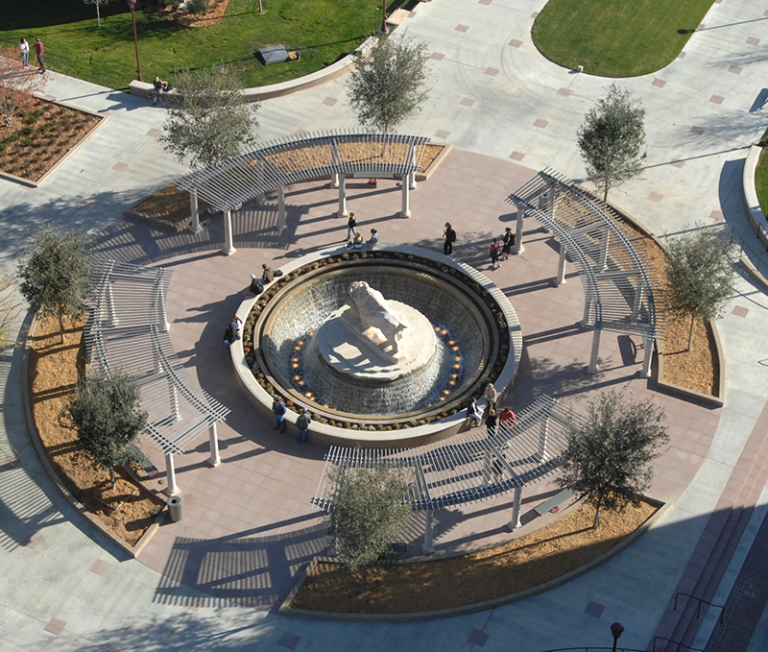
Fifth in a series of reflections on student life at West Texas A&M University.
According to Forbes, leaders lead everywhere they go, not solely in industries. Universities should be developing leaders who solve the problems that challenge our communities. An attribute of leadership is adaptability to change. Our communities are changing at a more rapid pace than ever before. Adaptability will be important to everyone, regardless of their leadership positions. Change agents have a powerful impact in business, industry and communities. Experienced leaders recognize that communities and places of commerce and industry must change to keep pace with a frantic world.
Peter Drucker, a leading educator and management guru, said, “To survive and succeed, every organization will have to turn itself into a change agent.” Such agency requires leadership. Drucker detailed leadership skills necessary for change agents are clarity, patience, strong relationships and leading by example. All these experiences can be available to university students who engage in leadership training.
While change agents in commerce share many skills and characteristics with leaders in every walk of life, leaders in communities directly impact community life. Community leaders need skill sets very similar to leaders from other walks of life. Mobilize reports ten important attributes for leadership in communities. Many of these attributes can be developed by college students through on-campus leadership experiences. Some of the best practices identified for community leadership include storytelling, commitment to a brighter future, sharing responsibility, being empathetic, humbleness, ability to read between the lines and interpreting what community members say and what they mean. We believe these same traits are also critical when leading peers, and student have the chance to apply them in leadership roles on a college campus.
While peculiar advice to aspiring leaders, Admiral William H. McRaven, in his widely read epistle, “Make your Bed,” made this observation:
If you make your bed every morning, you will have accomplished the first task of the day. It will give you a small sense of pride and encourage you to do another task and another and another. By the end of the day, that one task will have turned into many completed tasks. Making your bed will also reinforce the fact that little things in life matter. If you can’t do the little things right, you will never do the big things right. And, if by chance you have a miserable day, you will come home to a bed that is made—that you made—and a made bed encourages you that tomorrow will be better. Start by making your bed if you want to change the world.
Small potatoes? Maybe, but the importance and power in leading a community, or any other organization, must include attention to detail and persistence in routines that construct not only the realities of our life but the realities of those with whom we share day-to-day experiences. This is critical because, in community leadership, people see you. People know you. They can find you at the salad bar in the local grocery store. The further an individual gets from their neighborhood, the less likely they are to “bump into” elected, appointed or self-anointed leaders. You will likely see a school board member shopping at Walmart if you go there regularly. The likelihood of you seeing the President of the United States or the governor of your state is nil. Local leadership matters and requires a kind of transparency and honesty mandated in a few other forms of leadership.
As we noted previously, students who learn and practice leadership on campus benefit themselves. But they also benefit the communities and the places of employment where they are present daily. Gallup says that 70% of the variance in team engagement is attributed to leadership. The National Association of Colleges and Employers asked employers what they look for on a recent college graduate candidate’s resume to screen for those they will interview and hire. Tied with the ability to work in a team, leadership attributes topped the list on almost 80% of the respondents in the survey. Experiential learning, participating and accepting leadership roles while students are on campus will help prepare them to be effective leaders in the future.
And more importantly, baby boomers currently in leadership roles are retiring in numbers far exceeding the number of new college graduates being produced. Current college students will have leadership opportunities earlier in their careers than prior generations, and they need to be ready to fill them.
At West Texas A&M University, that is our aspiration.
Walter V. Wendler is President of West Texas A&M University. His weekly columns are available at https://walterwendler.com/.
Mike Knox is the Vice President for Student Enrollment Engagement and Success at West Texas A&M University




